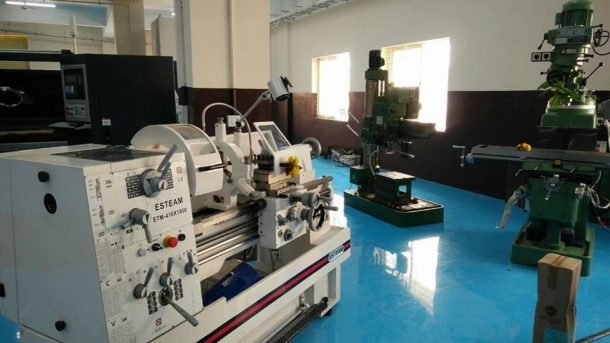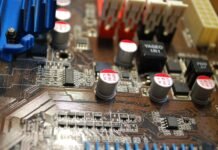Bengaluru Electronics City is home to some of the biggest IT services companies such as HCL, Infosys, Tech Mahindra, TCS, and Wipro. These companies along with global giants like 3M, Hewlett Packard, Siemens, and Timken with offices in Bangalore have contributed to Bangalore emerging as India’s Silicon Valley. This is a popular narrative.
However, many are not aware of the fact that Electronics City has a vibrant ecosystem for electronics, systems design, and hardware manufacturing companies. Electronics City was founded in 1978 by R.K Baliga under the leadership of the then CM of Karnataka, Devaraj Urs to host electronic systems manufacturers.
There are several companies such as Radel, Konar Engineering, Customised Technologies, Synthesis Winding Technologies, Erkadi Systems, focusing on engineering and electronics manufacturing, that have grown over the years.
Several MSMEs have joined the electronics, system designs, and hardware manufacturing, which has a promising sustainable future. The credit for creating a nurturing ecosystem for supporting the MSMEs in the space goes to ELCIA Cluster.
ELCIA Cluster
The growth of this ecosystem lead to the need of having infrastructure for R&D, machining, calibration, and testing, otherwise easily available for large enterprises. This was addressed by Electronics City Industries Association (ELCIA), by setting up the ELCIA Cluster, a special purpose vehicle aiming to address lack of infrastructure by providing a Common Facility Centre (CFC), a prototyping and a development center for mechanical and electronics manufacturers.
The Cluster offers diverse set of machineries under one roof, which it has procured with the help of the grant from Government of Karnataka and Government of India, along with the contribution from member companies of the Cluster. Only the cost of operating the facility, and the upkeep of the machines are charged to the users. The optimal usage of the CFC will MSMEs in reducing the cost drastically compared to the market rates.
Problems of MSMEs
Large multinational companies usually can afford to invest on machines to help their R&D, prototyping, testing, and manufacturing processes. However, due to the prohibitive cost of procurement of these machines and tools, MSMEs cannot afford high-capital infrastructure in-house.
Major problems due to lack of technology include:
- Lack of profits: Many of the machining and testing work are outsourced, which results in losing nearly 15% to 20% of revenue.
- Excessive expenditure in iterative process: Product development is an iterative process, with cost and time being critical factors. This has a huge impact in the profitability, and, even the sustainability of the MSMEs.
- Loss of time: Time factor is important in deciding marketability and profitability of the business. MSMEs in Electronics City are unable to launch and deliver products on time due to technological constraints and due to non-availability of schedule from MNCs and PSUs.
Typically, in an MSME, if someone has an idea to develop an electronic component, he/she must use several facilities. He/she may go to one company to manufacture a board, another company for assembling the components in the board, and somewhere else for the enclosure.
To help individual/s avoid going to multiple places, the infrastructure at the ELCIA Cluster will help MSMEs, whether they are developing a new product or testing it.
Approval and Recognition
ELCIA Cluster got a new impetus from Government of India’s Make in India initiative. With funding and approval from the Government of Karnataka and the Government of India, ELCIA procured equipment. ELCIA Cluster has been recognized by the Government of India and the Government of Karnataka.
Facilities at the ELCIA Cluster
ELCIA Cluster’s Common Facility Centre will be of help for students, members, entrepreneurs, and industries in and around Electronics City. It aims to be a complete product development hub namely, Concept, Prototype, Testing, and Production, the four stages of product making process.
The equipment available at the facility are:
- Vertical Machining
- Spark Erosion Machine
- Laser Cutting Machine
- Welding machines
- Surface grinders
- Lathe machines, and
- measuring systems for mechanical prototypes.
For Electronics prototypes, equipment available are:
- SMT Assembler
- Solder plate printer
- X-Ray machine
- Optical inspection machines
- Fabrication machines
- Hot and cold chamber, and
- Measuring instruments like Oscilloscopes, LCR Bridge, multi-meter, and clamp meter.

How MSMEs are using the facility
There are totally 34 members using this facility. Currently, the Cluster is serving 60 to 65 companies, who give the job or service to the operations team at the Cluster. For mechanical products, companies give the order for the product including the components involved in the manufacture of the product. The Cluster makes the product and hands it over to the company.
For electronics, the service provided are assembly of boards, components on VCB board, and testing. They also test the final product manufactured by the companies. Notable companies using the facility include Bhavani Industries, Tessolve Semiconductor Private Limited, TESCOM, Synthesis Winding Technologies, Hical Technologies and Opto Circuits.
The MSME Sector
Bengaluru Electronics City is a hub for electronic systems manufacturers, some of which fall under what is the Micro, Small and Medium Enterprises (MSME) sector, who have been functioning in Electronics City for more than 15 years.
The MSME sector contributes to 45% of the manufacturing output, 40% of the exports, and 8% of India’s Gross Domestic Product (GDP), providing the largest share of employment opportunities after agriculture. The cost of capital of employment for MSME is lower than large industries, which perfectly suits in industrializing rural areas.
The Potential of Electronics, System Design and Manufacturing (ESDM)
India has been riding the wave of information technology for many years. With the economic growth in India, and significant penetration of electronics our day-to-day life, including cell phones, televisions, automobiles, home essentials and others, the demand for electronics and electronic products has grown exponentially. Due to this growth potential of electronics design, and manufacturing, the demand for manpower and infrastructure has risen.
The ongoing digital revolution in the country and across the globe, coupled with the government’s thrust on using technology in delivering public services have opened opportunities for companies to innovate and manufacture products. There is a focus on design to add value and proposition, and to make manufacturing sustainable in the country, while banking on local manufacturing and design-led growth.
How is ELCIA Cluster a model for India’s Electronics Systems, Design and Manufacturing?
ELCIA Cluster is the first cluster in the country that has been helping member and non-member companies in the manufacturing process of electronics systems, and it is aiming to capitalize on electronics manufacturing, the next wave in the country, staying true to the fact that India’s Electronics System, Design & Manufacturing (ESDM) sector will grow multifold in few years’ time.
ELCIA Cluster is being used by member and non-member companies, to save capital expenses and time. The continued success of these MSMEs will be an inspiration for other state governments to implement similar clusters in their manufacturing hubs. These Clusters will help MSME companies in electronics, system designs, and hardware manufacturing get the necessary infrastructure to get through the product development process helping them to grow faster.





